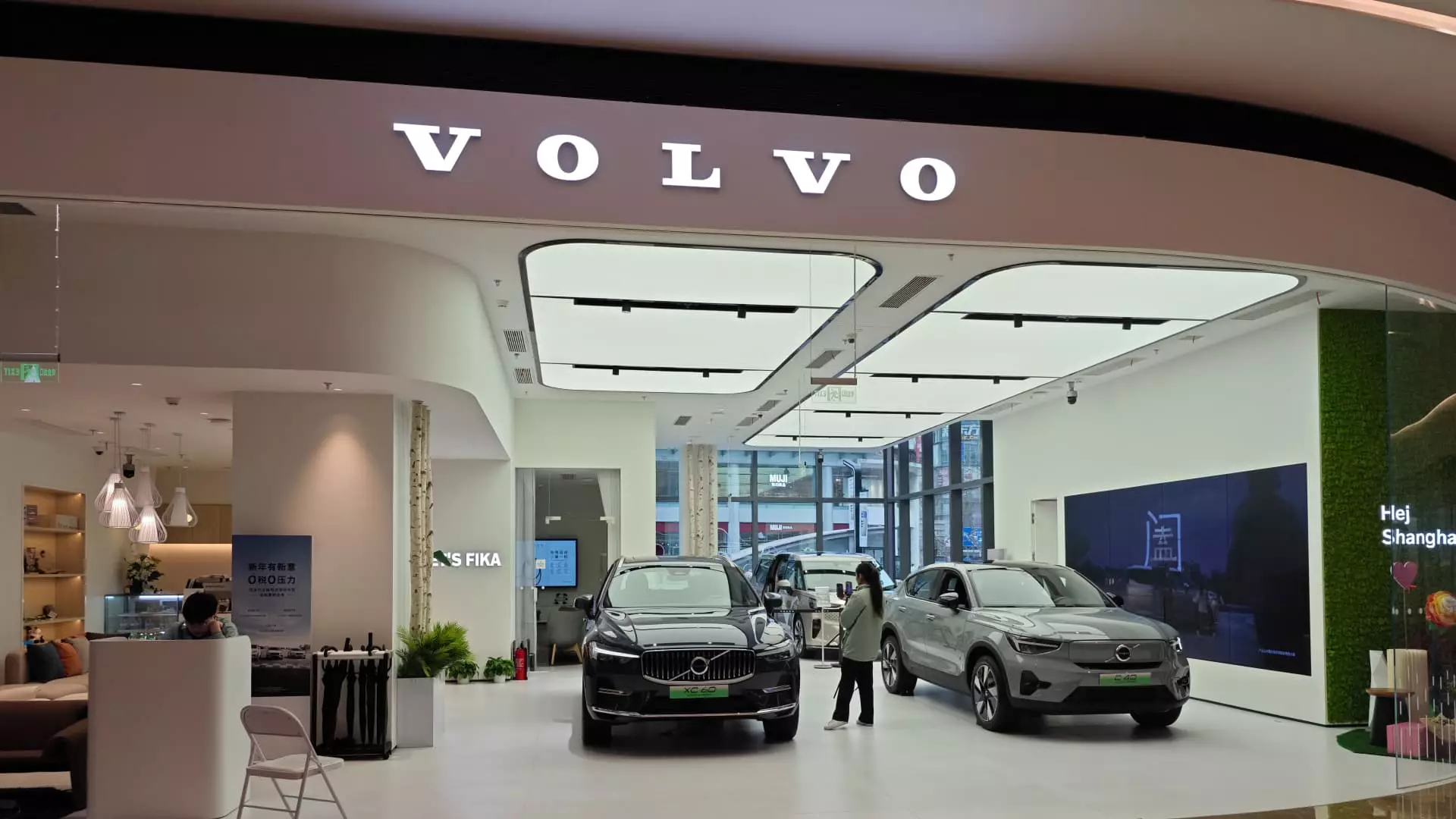Volvo Cars, a Swedish automaker primarily owned by China’s Geely Holding, recently made significant adjustments to its margin and revenue goals. The company decided to revise its EBIT (earnings before interest and taxes) margin target to 7-8% by 2026, a decrease from the previous target of “above 8%.” This change was attributed to the growing complexity, particularly related to global trade and tariffs in the automotive industry.
In response to the ever-changing landscape of international trade disputes and tariffs, Volvo Cars opted to shift its focus towards “outgrowing the premium car market until 2026” rather than aiming for a revenue range of 500 billion to 600 billion Swedish kronor. The company acknowledges the challenges posed by geopolitics, especially as it navigates relations between the European Union, China, and the U.S. while striving to maintain a competitive position amidst the ongoing transition towards electric vehicles.
Volvo Cars initially set a goal of achieving 100% all-electric vehicle sales by 2030; however, it recently announced a change in its strategy. Instead of aiming for a full transition to electric vehicles, the company now seeks a range of 90-100%, allowing for the continued sale of mild hybrid models. This adjustment was driven by various factors, including consumer demand, challenges in charging infrastructure rollout, removal of government incentives in certain markets, and uncertainties surrounding tariffs on electric vehicles.
Following the announcement of its revised goals, Volvo Cars witnessed a 3.2% increase in its shares, partially offsetting a 10% decline earlier in the week. The company’s commitment to electric and plug-in hybrid models was showcased during its Capital Markets Day event in Sweden. Volvo Cars currently offers five fully-electric models and has five more in development. The decision to extend the partnership with Nvidia for the development of advanced driving assistance and autonomous driving features underscores the company’s commitment to innovation in the industry.
Recent sales data from Volvo Cars indicated a 3% year-on-year increase in global sales in August, with notable variations across regions. While European sales grew by 32%, China experienced a significant decline of 23%. In August 2024, fully-electric and plug-in hybrids accounted for nearly half of the total vehicle sales, indicating a gradual shift towards electrified models. Despite the challenges and adjustments in targets, Volvo Cars reported a record quarterly operating profit of 8.2 billion Swedish kronor in July.
Volvo Cars’ decision to revise its margin and revenue targets reflects the evolving dynamics of the automotive industry, particularly in the context of international trade and the shift towards electric vehicles. By adapting its strategy and focusing on sustainable growth, the company aims to navigate the challenges ahead while maintaining its position as a key player in the global automotive market.

